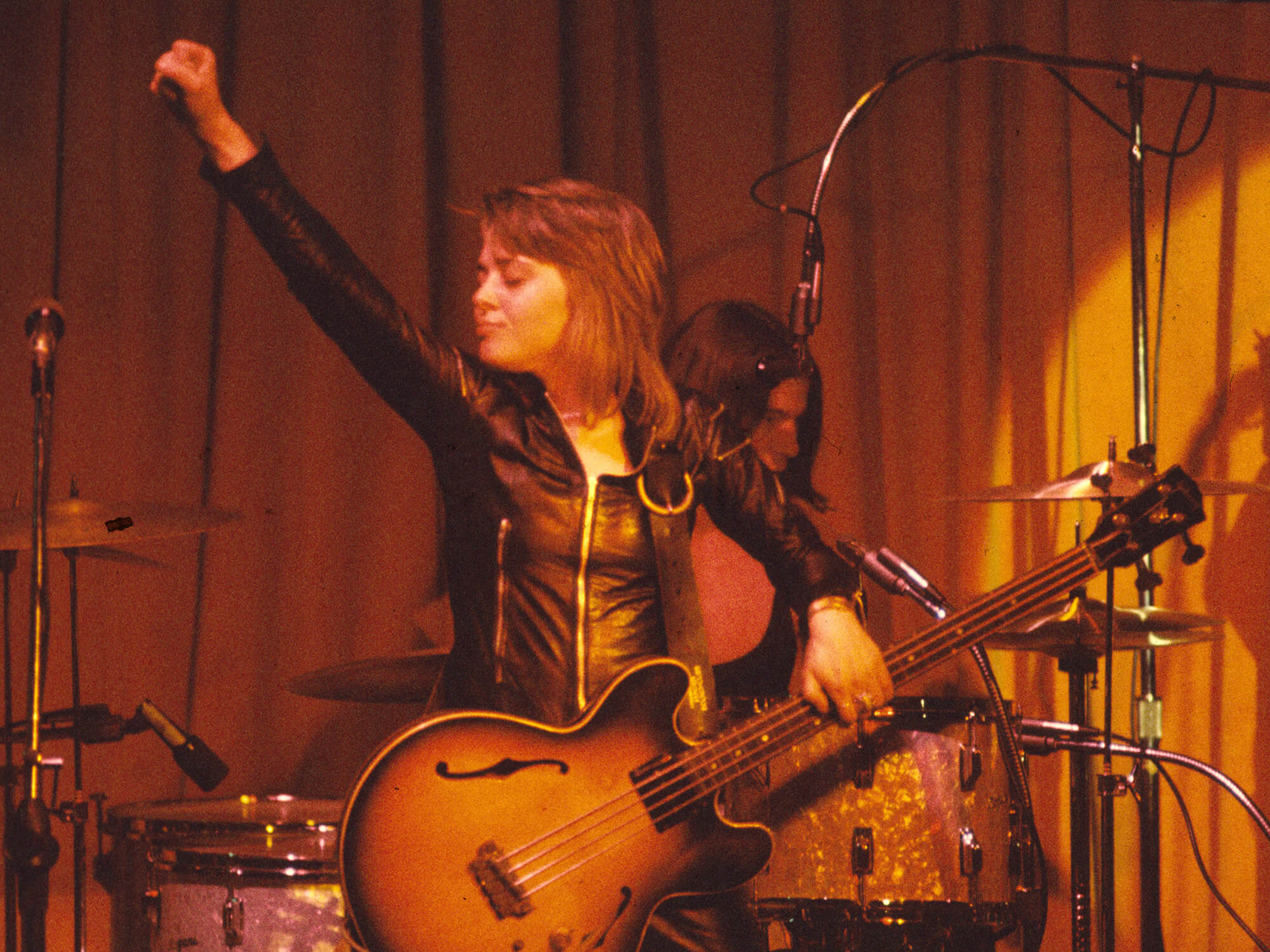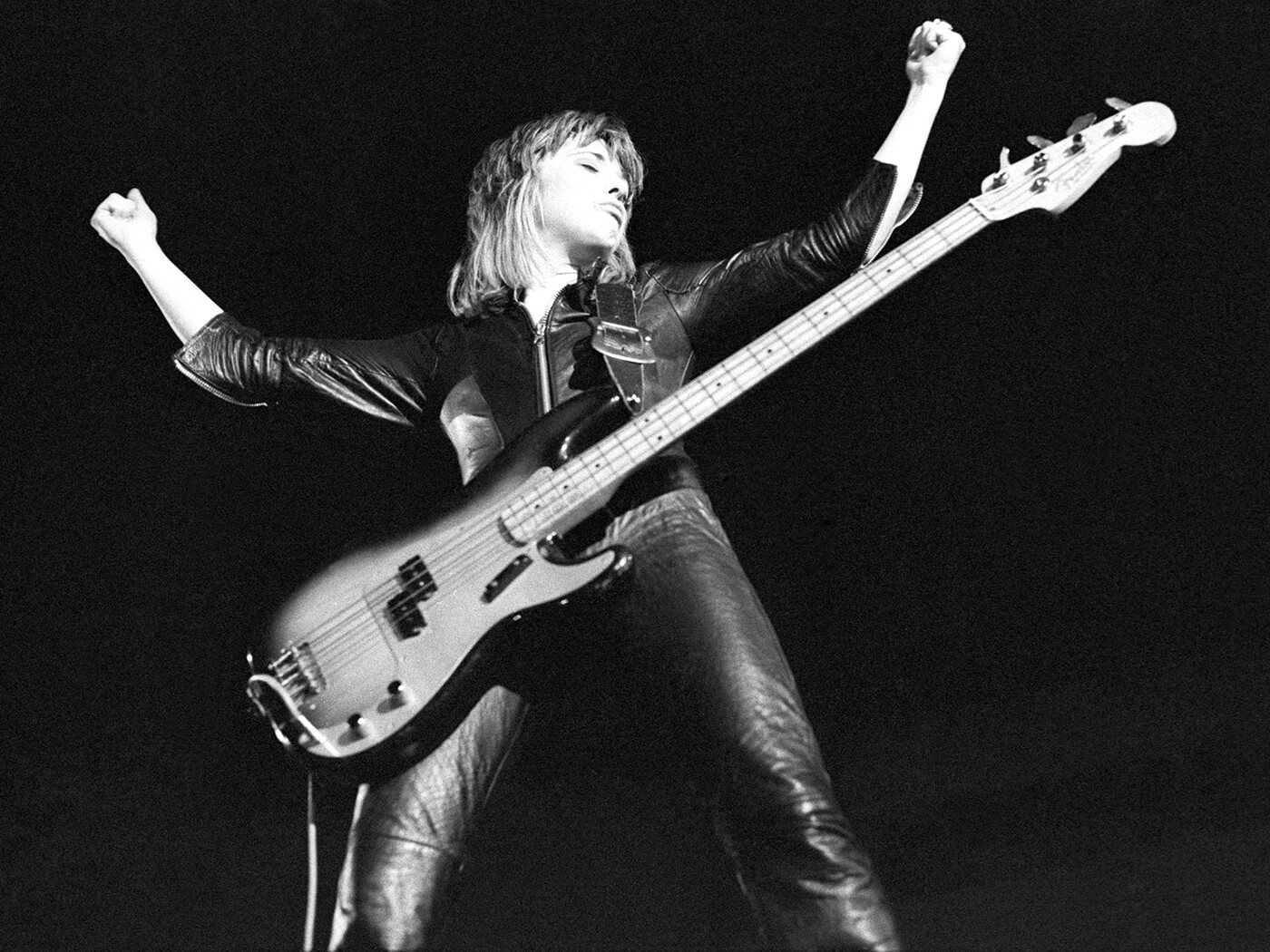The Genius Of… Quatro by Suzi Quatro
It might not have made her a star in her homeland, but Quatro’s second LP laid the path for many others to follow, while carving out a place for her as a rare woman in 70s rock

Image: Chris Walter/WireImage/Getty Images
Released in 1974, by Detroit-born bassist and vocalist Suzi Quatro, Quatro was and still is a quintessential album for rock and punk musicians alike. Throughout her career, Quatro has always been open about her struggle to find fame in the United States as she did in other countries. As such, Quatro represents the pinnacle of her international fame, reaching number 1 in the Australian Charts, and 5th in the Norwegian charts.
Some might argue that this sophomore album is not representative of Quatro’s talents as it did not reach the commercial success that was hoped, but with hits like The Wild One and Devil Gate Drive, its impact on other like-minded musicians cannot be understated.
The album acted as the foundation for many household names to take flight, such as Joan Jett and the Runaways, who often credit Quatro as an influence both musically and personally, while she is explicitly mentioned as an inspiration several times in 2010 documentary The Runaways
Glam slam origins
Quatro first emerged in the Glam-Rock scene in 1973 with the release of her self-titled album Suzi Quatro, but this was not the start of her music career. She first found her music roots in the late 50s at eight years old as a percussionist for her father’s jazz band, the Art Quatro Trio. Quatro resembles much of the music of her past, as well as carving a name for herself in the future.
One song that does this is second track on the album, Keep a Knockin’ – a reclamation of Little Richard’s 1958 song of the same name. Quatro’s rendition features the same 12-bar blues structure of the original song, offering a 50s swing, but with the notorious fast paced grumble of Quatro’s 1957 Fender Precision bass and her “grizzly and raw” voice, as described by journalist Lisa Torem. In a further twist, she decides to flip the meaning of the song on its head in a nod to the young girls listening to her take the mic, making this the ultimate anthem of female empowerment.
“This is dedicated to all you 16-year-old girls out there,” she says. “You know, when all those boys come round asking for a date, you just gotta sit back and be cool, and tell em one thing…you keep on knocking but you can’t come in.”
This is not the only time she takes the power of reclamation into her own hands, with the likes of Ray Charles’ 1961 Hit The Road Jack appearing later in the record. Offering a chugging basslines and guitar riffs teeming with influences from rock, to soul, and gospel, this song presents the sheer capabilities of Quatro, as well as what has inspired her to be the musician she is.

The Singles
In an interview with the Newcastle Journal In 2003, she claimed that “according to the Elektra president, I could become the new Janis Joplin”. Certainly a big claim to make, but with ground-shaking singles The Wild One, and Devil Gate Drive emerging from this record, it’s not a comparison that is out of reach.
The Wild One offers the glam-rock fantasy that is so adored by many, with heavy guitar riffs accompanied with intricate and relentless bass sequences before settling into a syncopated rhythm. This is then cut through with Quatro’s powerful voice declaring “all my life I wanted to be someone and here I am!”.
It’s something to keep on top of the unrelenting work out that is the bass guitar, but to also prove so much energy and tenacity in the vocals is admirable.
A similar determination is proven in second single, Devil Gate Drive, which provides a chugging from the guitars that is synonymous with similar singles of the same time, like Status Quo’s Rockin’ All Over The World, and Gilbert O’ Sullivan’s Get Down, while still offering the charismatic and enthusiastic flare made famous by the young bassist.

Embracing the feminist
Quatro emerged in the early 70s out of a male-dominated glam-rock scene, with the likes of Slade and Mud, among others. As such she has never been shy in acknowledging her position in the world of Rock ‘n’ Roll.
In an interview with the Metro Times in 2012, she unpacks the importance of her early work: “Before I did what I did, we didn’t have a place in rock ’n’ roll… I was the first to be taken seriously as a female rock ’n’ roll musician and singer. That hadn’t been done before. I played the boys at their own game… If I have a legacy, that’s what it is.”
This attitude is evident in many of the tracks in this album, from Klondike Kate, Trouble, and The Wild One, packed with boldness from not only her lyrics, but also the playing styles throughout.
The opening riff of Trouble really shows her power as a musician, with a building punch from both the bass and guitar, before amalgamating into a hard hitting groove with Elvis style vocals throughout.
Her confidence in not only her vocal ability, but playing power is evident throughout, and shows her authority, despite being one of the first women in this genre to do so.
